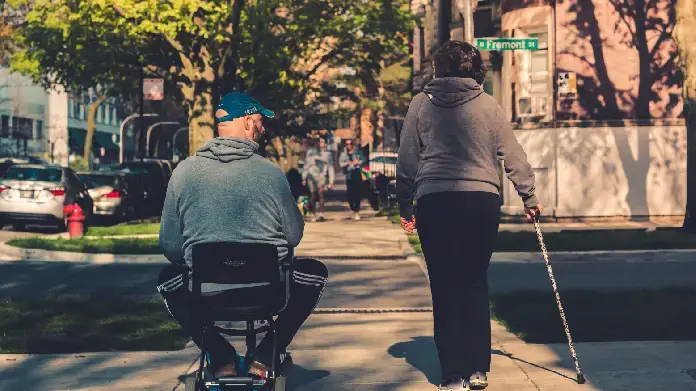If you need a cane, walker, or wheelchair to ambulate effectively, it can have a significant impact on your claim for disability benefits. It is important to let your Social Security disability attorney know that you need an assistive device to stand and/or walk.
Many jobs that require a person to stand or walk during the work day can be hard to perform when the employee needs an assistive device. For example, if you are holding on to a cane with one hand, you may not be able to use that hand for work tasks.
It also matters why you need the device and how often you use it. These devices may be used for standing, walking, balancing, or all the above.
You may need an assistive device any time you stand or only for prolonged activity. There can be many factors to consider when determining how someone can work when they need an assistive device.
Social Security Disability: Claim Denied?
Need Help With Application?
Don't get frustrated! At our law firm, it's our mission to professionally represent our disabled clients, as well as their families, and work hard to get you the benefits you deserve.
or Email us.
A common question I find Administrative Law Judges consider at your disability hearing is whether your assistive device is “medically necessary”. In other words, does your medical record support that you need a cane or walker as you claim.
In my experience, one of the best ways to address this question is to have a prescription from your treating physician for your cane, walker, or wheelchair.
Medical Statements
You should let your physician know if you believe that you need a cane, walker, or wheelchair. You should try your best to obtain a prescription for the assistive device from your health care provider. Even a simple notation from a qualified medical professional that states your assistive device is medically necessary can suffice.
In my experience at hearings before an Administrative Law Judge (ALJ), the ALJ may not be convinced that you need an assistive device if you obtain it on your own from a pharmacy or relative.
Your physician can either write a prescription or make a statement in the form of a medical source statement that you can provide to your disability attorney or the Social Security Administration (SSA).
Once the SSA believes you medically need your assistive device, the SSA will then decide how the use of your device impacts your ability to work. At your hearing, a Vocational Expert (VE) will testify to the impact of an assistive device on certain types of jobs.
In my experience, this can be where a well-trained attorney may be able to reduce or eliminate the number of jobs available in the economy for a person with an assistive device.
This can be done through questioning the VE as to whether the demands of jobs would tolerate the use of a cane, walker, wheelchair or other device.
Eroding the job base can be the key to a favorable outcome in your case. There are also Vocational Guidelines relating to your case depending on your age, education, and prior employment that can work in your favor when your assistive device limits you to lesser physical demands.
Often at a Social Security disability hearing, a Vocational Expert (VE) will testify that these types of devices are an accommodation in the workplace. In other words, an employer would have to make an exception for you to work there, and this is not consistent with competitive employment.
This may sound complicated or technical, but in my experience, getting a prescription or statement from your physician for your required assistive device generally can help your case and prove that you need help with your ambulation.
As with all Social Security Disability Insurance (SSDI) and/or Supplemental Security Income (SSI) cases, complete and thorough medical records can be the most important factor in helping you to get the benefits you deserve.








